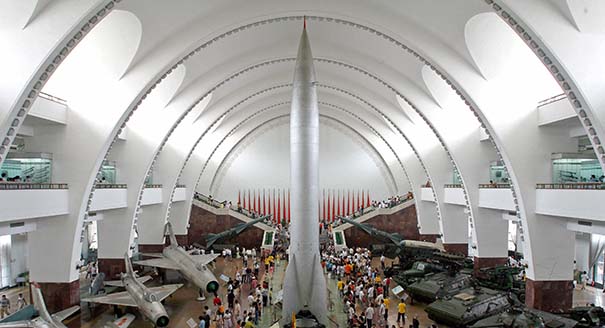Registration
You will receive an email confirming your registration.
Since the close of World War II, nuclear weapons have helped determine the degree of stability in the international political system, and have been a cornerstone of many leading powers’ national security strategies. However, in recent years, the United States, Russia, and other major powers have increasingly invested in new technologies, such as cyberspace capabilities, missile defense, and conventional strategic weapons, that are challenging long-held notions of nuclear balancing and strategic deterrence, and by extension making traditional nuclear relations more complex.
Carnegie–Tsinghua’s Zhao Tong will moderate a discussion with Chinese and international experts to analyze precisely how missile defense, counter-space capabilities, hypersonic missiles, and cyber weapons are altering nuclear interactions between major military powers. The conversation will shed new light on what policy measures can be taken to address the challenges likely to be ushered in by these new technologies.
Zhao Tong
Zhao Tong is an associate in Carnegie’s Nuclear Policy Program based at the Carnegie–Tsinghua Center for Global Policy.
Lora Saalman Ofner
Lora Saalman Ofner is a senior associate and director, China and Global Security Project, at the Stockholm International Peace Research Institute (SIPRI).
Wu Riqiang
Wu Riqiang is an associate professor at the School of International Studies at Renmin University.
Jaganath Sankaran
Jaganath Sankaran is a research scholar at the Center for International and Security Studies at the University of Maryland’s School of Public Policy.
Li Bin
Li Bin is a senior associate working jointly in the Nuclear Policy Program and the Asia Program at the Carnegie Endowment for International Peace.
